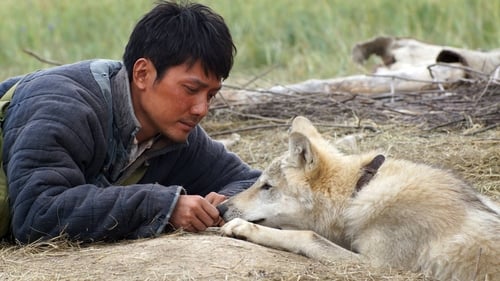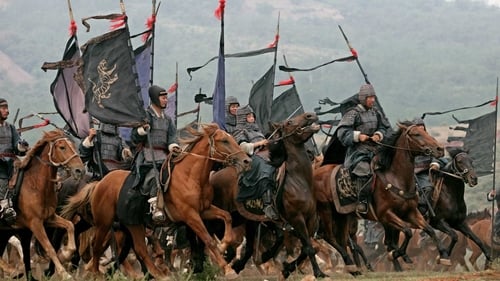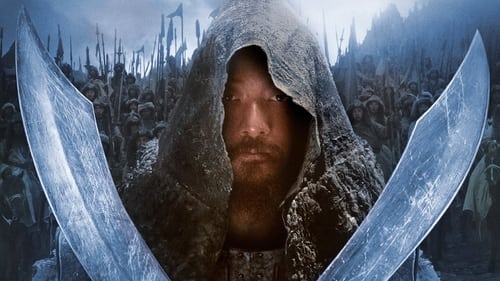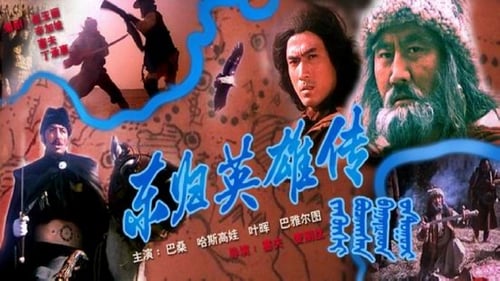Mijid Baasanjav
Nacimiento : 1954-01-01, Inner Mongolia, China

Dei-Sechen
Temüjin y Börte son amantes de la infancia que están profundamente enamorados, pero las noticias de la muerte del padre de Temüjin interrumpieron rápidamente su relación. Temüjin regresa a su ciudad natal, pero se enfrentó a un ataque repentino de los antiguos camaradas de su padre, causando la destrucción de toda su tribu.

Bilig
1969. Chen Zhen es un joven estudiante de Pekín al que envían a Mongolia Interior para educar a una tribu de pastores nómadas. Pero el que realmente aprende es Chen: sobre la vida en esa tierra infinita y hostil, la libertad y la responsabilidad, y la criatura más temida y reverenciada de esos lugares, el lobo. Sin embargo, la relación de atracción existente entre esas criaturas complejas y casi místicas con el ser humano se ve amenazada cuando un oficial del gobierno central decide por todos los medios eliminar los lobos de esta región.

A little known fact is that Chinggis Khaan, better known as Genghis Khan, would collect orphans from his bloody battlefields and have his own mother raise them. These adopted brothers grew up to become his most loyal officials and advisers. Khaan organised his Mongol soldiers into groups according to the decimal system. Soldiers were arranged in units of 10 ("aravt"), 100 ("zuut"), 1,000 ("minghan") and 10,000 ("tumen"). Each unit had an appointed leader reporting to a larger unit. A 10-person "aravt" unit is ordered by Khaan to locate a skilled doctor who lives in a forest. En route, they discover an abandoned baby. He is in fact the child of an enemy warrior who gives pursuit, even though they have saved the child's life. Whilst protecting the child from attacks from enemy soldiers, the members of the "aravt" must also complete their mission. Through their actions, they demonstrate the benevolence and bravery of Mongol warriors as the final battle closes in.

General Guan Yu
Segunda parte de la adaptación de la conocida novela El Romance de los Tres Reinos, uno de los libros más importantes de la literatura china

Guan Yu
En China, hacia el final de la Dinastía Han (208 d.C.) Cao Cao, el temible Primer Ministro (y gobernante de facto) convence al veleidoso Emperador Han de que declare la guerra a los reinos de Xu, al oeste y al este, y al reino de Wu, al sur. Su objetivo, según dice, es la unificar China por el bien del país, pero, en realidad, sus motivos son bastante más egoístas. Tras convencer al Emperador, Cao Cao lleva a su ejército de casi un millón de soldados a la guerra. Su primer objetivo es el Reino de Xu, de reciente creación, gobernado por el benevolente líder Liu Bei. Al llegar al Reino de Xu, las fuerzas de Cao Cao, superiores numéricamente, derrotan fácilmente al ejército de Liu Bei. Los ciudadanos de Xu huyen bajo la protección de las tropas de Liu Bei y de sus dos generales de mayor rango (y hermanos de sangre): Guan Yu y Zhang Fei, que se quedan atrás a riesgo de sus propias vidas para salvar a los campesinos que intentan escapar

Esugei
Narra la vida del legendario y tembile Genghis Khan desde su esclavitud hasta que conquistó la mitad del mundo, incluyendo Rusia en 1206. Una superproducción de corte épico que fue seleccionada por Kazajstán como candidata al Oscar a la mejor película de habla no inglesa.

During the 12th Century a boy is born to a tribal chief. He is named Temujin, which means "blacksmith." Nine years later, his father is murdered by the Tartars After a long struggle, just when Temujin reclaims tribal chief status, the Merkit tribe kidnaps his wife. In order to fight against the Merkits, Temujin has to use his mother as a pawn in exchange for troops from ally tribes. Temujin manages to rescue his wife only to realise that she is pregnant with the enemy's child. Enduring tremendous anguish, Temujin throws himself into battle against the Tartars and slaughters the leader of the intruders. He eventually takes his wife back and accepts her child. Later on, he begins a campaign to unify all Mongolian tribes. By the age of 40, he is bestowed the title "Genghis Khan", which means "oceanic ruler".

Tian Huchang
In 1771 the oppression of Tsarist administration forced the larger part of Kalmyk's approximately 170,000-200,000 people to migrate to Dzungaria. Ubashi Khan, the great-grandson of Ayuka Khan and the last Kalmyk Khan, decided to return his people to their ancestral homeland Dzungaria, and restore the Dzungaria Khanate and Mongolian independence. Their goal is not an easy one and a lot of fighting and drama unfolds.







